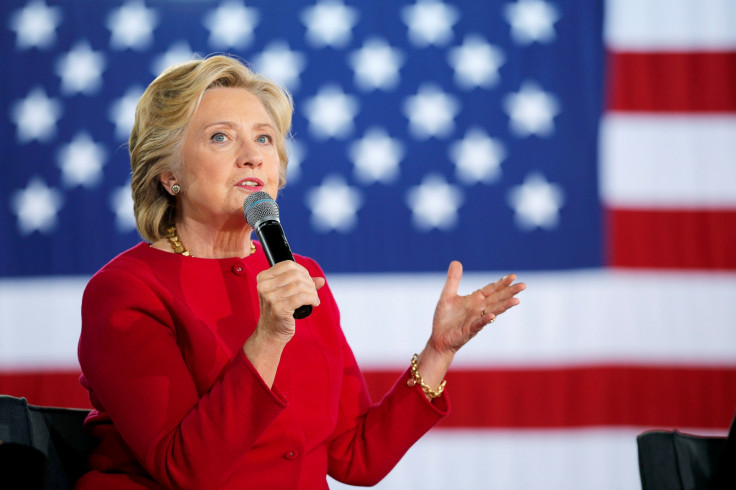Clinton won't budge on mass surveillance stance, leaked emails reveal
WikiLeaks has released over 5,000 emails from Clinton's campaign chairman.

When it comes to government surveillance and a political stance on strong encryption, Democratic presidential candidate Hillary Clinton's "instincts" will always side with law enforcement, according to a leaked email from her campaign chairman, John Podesta.
The email, which was sent last November amid the well-publicised dispute between tech giant Apple and the FBI, made it clear that Clinton is unlikely to weaken her own beliefs in an attempt to appeal to voters or gain political points.
"Her instincts are to buy some of the law enforcement arguments on crypto and Snowden type issues," Podesta wrote in the email to Luke Albee, a former chief of staff to Democratic senator Mark Warner.
In the leaked email, released by whistleblowing platform WikiLeaks on 12 October, Albee stressed to Podesta how Clinton could seize the Snowden leaks – which revealed a number of the surveillance programmes used by spy agencies around the world – to strike against rival candidate Donald Trump.
"The Tea Party was born [because] of the perception of government encroachment in people's lives [...] The Snowden stuff confirmed what many felt...the government was collecting vast troves of information on everyone," Albee wrote.
He continued: "Trump called for registering Muslims. He has called for a federal domestic police force that will be focussed on arresting and deporting 11 million people. Other candidates are talking about separating immigrants by religion. All of this is about building up and feeding the BIG BROTHER beast.
"At a certain point, I think HRC might bring together all the different strands (mostly Trumps) of expanding federal Big Brother government –and talk about how it's possible to be safe without creating some kind of large and cumbersome and intrusive police state. This will sew divisions and acrimony on the other side."
In response to the email, titled "one idea for a little down the road", Podesta wrote: "May be tough, but worth looking for an opening." It appears the opening never came, as Clinton – less than a month after the email was sent – called for an "intelligence surge" in the US to help fight terrorism.
Throughout the presidential campaign, Clinton has not softened her approach to surveillance, Snowden or strong encryption. On the infamous NSA whistleblower, she has claimed: "He stole very important information that has fallen into the wrong hands so I think he should not be brought home without facing the music."
Additionally, when asked last year during one campaign debate if she regretted voting for the controversial US Patriot Act, Clinton said: "I don't. I think that it was necessary to make sure that we were able after 9/11 to put in place the security that we needed."
The ongoing Podesta email leaks continue to plague the Democratic Party as the disclosures show no sign of slowing. Julian Assange, founder of the platform hosting the documents, has said that WikiLeaks will continue to publish sensitive files "every week for the next 10 weeks".
The US government believes that hackers affiliated with the Russian government are responsible for the initial hacking of numerous political entities. After being officially accused, President Vladimir Putin rejected the suggestion of Kremlin involvement.
© Copyright IBTimes 2025. All rights reserved.






















